This article is part of a 22-part miniseries on the history and stars of Iranian football released ahead of Iran's participation in Group B of the 2022 Qatar World Cup in November. You can explore the rest of the series here.
On February 9, 2020, Iranian football star Ali Daei publicly alleged that the Ministry of Sports’ security division had disqualified him from the running for head coach of Team Melli. The semi-official news agency ISNA quoted Daei as having said: “The institutions confirming my eligibility are the official intelligence institutions of the country."
By most measures Daei is the most accomplished player in the history of Iranian football. From 1993 to 2006, he played 149 matches for the national team and scored 109 goals, first as a player, then as captain. In fact he was the highest-scoring national player in the world until September 2, 2021, when the record was broken by Cristiano Ronaldo. Daei has also played for Bayern Munich and Hertha Berlin at the level of the European Champions League and Bundesliga.
After Marc Wilmots’s resignation as head coach in December 2019, Daei and fellow ex-player Amir Ghalenoei were the two domestic frontrunners being considered by the Iranian Football Federation. Initially only foreign name on the table was that of the Gianni de Biasi, but then Dragan Skočić became the surprise appointee in February 2020.
Both Daei and his fans were deeply cynical about his losing out on the top role. Daei has long been a vocal critic of the socio-political situation in Iran and an outspoken champion of civil society initiatives, which the regime perceives as subversive. Over the years, his activism has repeatedly put his position in both clubs and top-tier football in jeopardy.
In spring 2019, Daei was fired from his coaching role by the CEO of Saipa Club, a man named in domestic media as Mostafa Modaber. On May 6, 2019, Daei told reporters that as far as he knew, nobody by that name was attached to Saipa. Insinuating, correctly as it turned out, that the CEO might have something to hide, he went on: “I don’t know a real person by that name.
“As far as my imperfect memory tells me, I knew him as Commander Ghafour when he was the head of security at IRIB [Islamic Republic of Iran Broadcasting]. It was interesting that he introduced himself as ‘Modaber’ on an episode of Navad [a popular sports program on Iranian TV]. When he spoke I found his tone of voice familiar and I saw that he was the same Commander Ghafour that I had known, the one from Ardabil. How did he become Mostafa Modaber? I wish somebody from the Registration Office were here so I could ask him whether people can change both their first and last names.”
Daei had previously claimed that ex-president Mahmoud Ahmadinejad played a role in his dismissal from managing Persepolis in 2014. This time, though, he had riled a much more powerful arm of the Iranian state: the IRGC.
In fact “Commander Ghafoor Derjezi”, aka “Mostafa Modaber”, real name Amir Mansour Bozorgian Asl, was reportedly among the IRGC agents who aided in the assassination of Abdolrahman Ghasemlou in Austria in 1989. As Ghafoor Darjezi, he was also named in court documents in relation to the Mykonos murders, in which four Kurdish opposition leaders were gunned down in a Berlin restaurant in 1992 by an agent working for the regime. A pivotal witness and ex-senior Ministry of Intelligence officer who turned himself over to the German authorities testified that Darjezi had been involved in the plot.
Parviz Dastmalchi, the author of a study of Iran's chain murders, Terror in the Name of God, relied on different sources to introduce Ghafoor Darjezi as a key collaborator in the Ghasemlou assassination. It was only after Ali Daei’s revelations about the current CEO of Saipa, he recently said in an interview, that he compared an old photo of “Ghafoor Darjezi” with one of “Mostafa Modaber” and realised they were almost definitely one and the same.
This and other public interventions have made Daei persona non grata with the unelected state and clerical caste in Iran. His supporters also allege that one of Iran’s intelligence agencies – realistically either the Ministry or the IRGC’s Intelligence Organization – had stepped in to prevent Daei from becoming the manager of Isfahan’s Zob-e Ahan.
Daei and fans also remain convinced that the Sports Ministry stopped him from taking up the role as head coach of the national team. Mehdi Alinejad, acting deputy of the Sports Ministry’s championships division, has insisted it was “not true”.
Then this summer, not four months before the World Cup was due to kick off in Qatar, news outlets in Iran reported “indirect negotiations” were taking place between Daei and the Iranian Football Federation. The suggestion was the Federation was looking to replace Dragan Skočić at the eleventh hour. Daei, for his part, then implicitly confirmed it, telling reporters he had rejected an offer from the Federation.
visit the accountability section
In this section of Iran Wire, you can contact the officials and launch your campaign for various problems







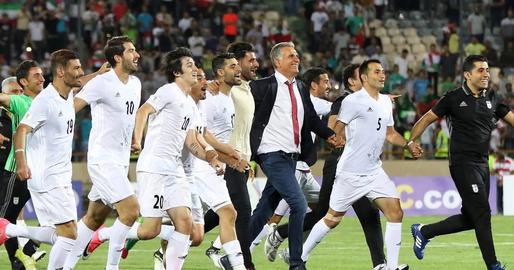
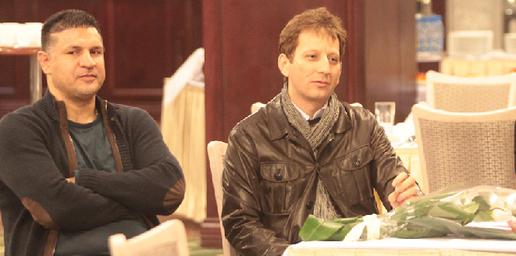
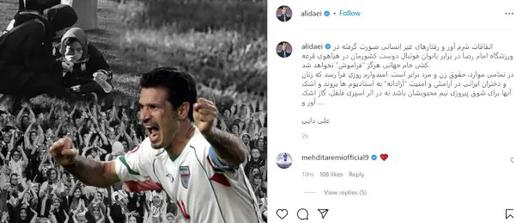
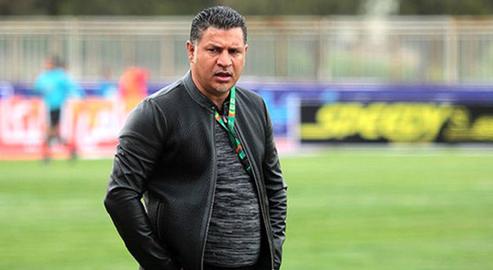











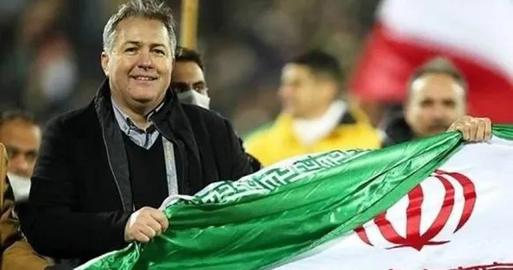
comments